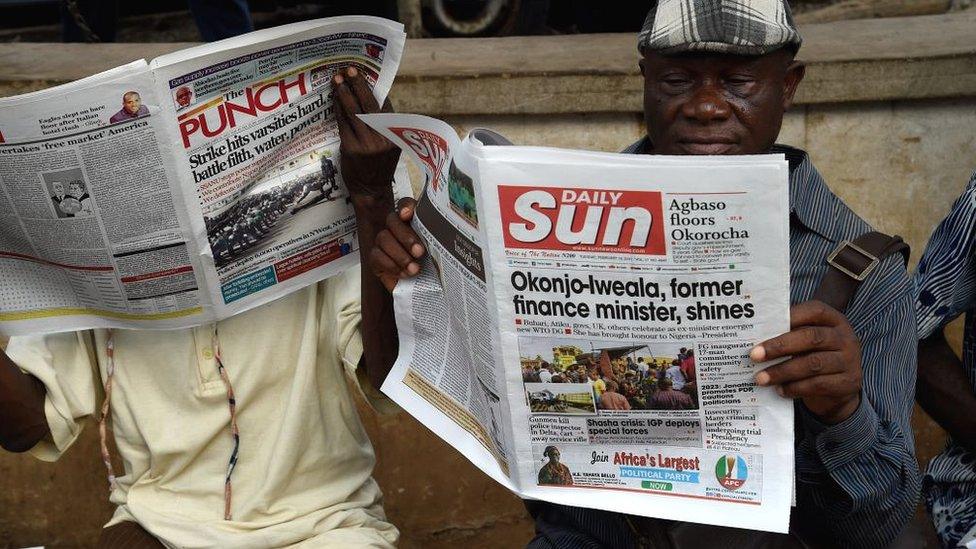Nigeria media guide
- Published
This page is no longer being updated. It was last updated on 1 March 2023

Nigeria's media scene is one of the liveliest in Africa. State radio and TV operate at federal and regional levels. All 36 states run at least one radio network and a TV station.
Nigeria is one of West Africa's most dangerous and difficult countries for journalists, says Reporters Without Borders (RSF). Journalists are often threatened, subjected to physical violence, or denied access to information by officials and police. Boko Haram, a militant Islamist group, has threatened the media.
There are hundreds of radio stations and terrestrial TV networks, as well as cable and direct-to-home satellite offerings.
Radio is a key source of information. International broadcasters, including the BBC, are popular. However, rebroadcasts of foreign radios are banned.
State TV says it reaches tens of millions of viewers, while the main privately-owned networks are market leaders in some cities.
The print media have been in sharp decline in recent years but there are still around 100 publications. They include well-respected dailies, tabloids and publications which champion ethnic interests.
There were 154 million internet users by December 2021, comprising 73% of the populations (Internetworldstats.com). WhatsApp and Facebook are the most popular social media platforms.
Press
The Guardian, external - influential, Lagos-based privately-owned national daily
The Punch, external - privately-owned daily
Premium Times, external - Abuja-based daily
Daily Independent, external - Lagos State-based daily
Daily Trust, external - Abuja-based daily
Leadership, external - Abuja-based daily
Vanguard, external - Lagos-based, widely-read daily
This Day, external - widely-read Lagos-based daily
The Daily Sun, external - Lagos-based
Tell, external - news weekly
Television
Nigerian Television Authority (NTA), external - state-run, operates scores of national and regional stations; national services broadcast in English
AIT, external - private, owned by DAAR Communications, broadcasting in Lagos, Abuja and internationally via satellite
Silverbird TV, external - private, Lagos, Port Harcourt
Galaxy TV, external - private, western Nigeria
Channels TV, external - private
Radio
Federal Radio Corporation of Nigeria (FRCN), external - state-run, operates in multiple languages
Ray Power, external - private, owned by DAAR Communications, runs music-based and speech-based FM stations
Freedom Radio, external - private, Kano
News agency
News Agency of Nigeria (NAN), external - government-owned